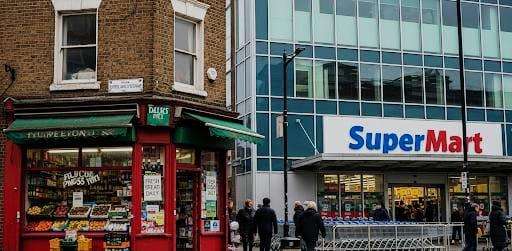The future of the UK's local shops, long considered the heart of many communities, is in grave doubt. A perfect storm of rising operational costs and intense competition from supermarket giants like Lidl and Aldi is pushing these small businesses, many owned and operated by British South Asian families, to the brink. While large chains boast of expansion and investment, the local convenience sector is being forced to make painful cuts, threatening not just jobs but the very fabric of community life.
An annual report from the Association of Convenience Stores (ACS) reveals a deeply concerning trend. UK convenience stores, which number over 50,000, have been forced to cut 2,000 jobs over the past year. This marks a decrease in total sector employment from 445,000 to 443,000. Additionally, total projected sales for the year have fallen to an estimated £48.8 billion from £49.4 billion a year ago. The investment from retailers has also fallen significantly, dropping by £100 million to £900 million.
The primary culprit is a ferocious pricing war. Discount supermarkets, led by Lidl and Aldi, have become dominant forces in the UK grocery market, with their combined market share now exceeding 18%. Their strategy of offering limited ranges of cheap, private-label goods has forced the "Big Four" supermarkets to slash their own prices, creating a "race to the bottom" that independent shops cannot possibly win. Lacking the economies of scale and vast buying power of the major chains, local shops are unable to compete on price, a crucial factor for consumers facing a cost-of-living crisis.
The challenges are amplified by significant increases in the cost of doing business. The rising National Living Wage, higher National Insurance Contributions (NICs), and reduced business rates discounts have placed a collective £612 million burden on retailers this year. For many small, family-run establishments, especially those within the British South Asian community who have traditionally owned and operated these businesses, these costs can mean the difference between staying open and closing down.
Despite these grim figures, there is a glimmer of hope. The ACS's Community Barometer 2025 report highlights that consumers still value their local shops for their positive community impact. While they may not be the cheapest option, convenience stores are seen as essential social hubs, job creators, and key services. Their ability to provide a more personalized, flexible service—from being a parcel collection point to a place for a quick, last-minute purchase—remains their greatest asset. However, as the ACS chief executive, James Lowman, warns, without government intervention to alleviate the growing financial pressures, the future of these essential stores and the communities they serve will remain in jeopardy.
_3.jpg)







.svg)

_1.jpg)

_3.jpg)